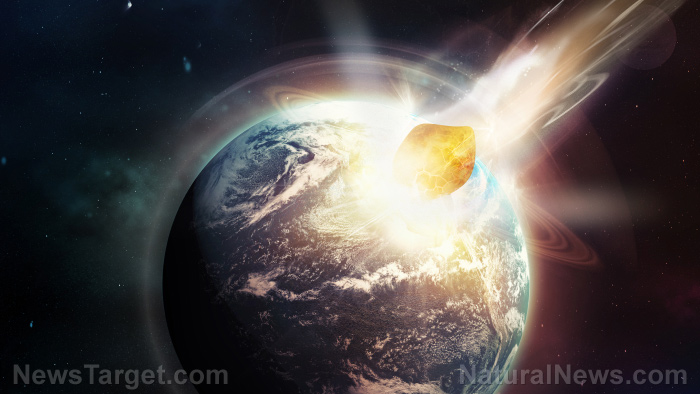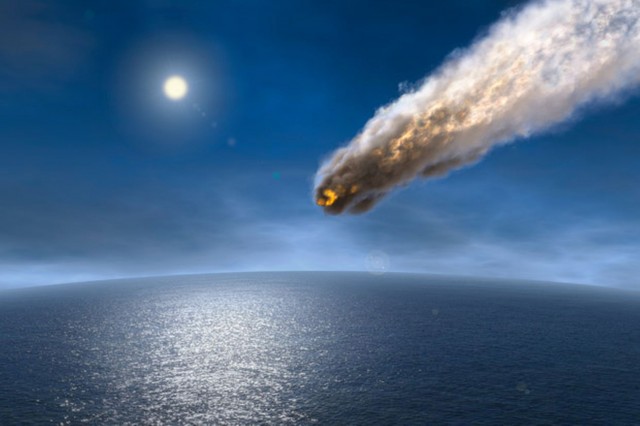
Jim Bridenstine was one of the speakers at the 2019 Planetary Defense Conference. He brought up the critical need for the U.S. to develop credible defenses against asteroids and other cosmic impacts.
Without a working planetary defense system, the Chelyabinsk meteor incident of 2013 might repeat itself in the future, potentially over U.S. soil.
During the meeting, NASA, the Federal Emergency Management Agency (FEMA), and other organizations agreed to hold a planetary defense drill. They considered the potential effects of an asteroid as it approached Earth.
“We have to make sure that people understand that this is not about Hollywood, it's not about the movies,” stated Bridenstine. “This is about ultimately protecting the only planet we know, right now, to host life and that is the planet Earth.” (Related: The collapse will be LOCAL: Former military intelligence, special forces veterans explain why your proximity to left-wing cities may determine your fate.)
NASA chief warns that another Chelyabinsk Event may arrive within our lifetimes
During the conference, Bridenstine brought the specter of the Chelyabinsk Event back into people's attention. He discussed the severity of a meteor strike and the possibility that it would take place over the U.S.
In February 2013, a sizable meteor streaked through the skies over the southern Ural Mountains. It detonated 14 miles over Chelyabinsk, Russia, which later experienced a different disaster.
Experts calculated that the aerial explosion was 20 times as strong as the atomic bomb dropped on Hiroshima. The resulting shock wave injured more than 1,600 Russian citizens and caused significant damage to Chelyabinsk.
The Tunguska Event of 1908 remains the biggest meteor strike in recorded history. But the Chelyabinsk Event came a close second in terms of power.
Earlier studies predicted that meteor events as powerful as Tunguska and Chelyabinsk only occurred once every 60 years. But Bridenstine pointed out that three such incidents took place in the last 100 years.
Going by Bridenstine's estimate, another Chelyabinsk-level event might take place within the lifetime of the current generation of humans. And while Chelyabinsk and Tunguska both exploded before hitting the ground, the next one might reach the surface, causing even more damage.
“I wish I could tell you these events are exceptionally unique,” admitted Bridenstine. “But they are not.”
The world's first asteroid deflector spacecraft is slated for launch in 2021
Bridenstine stressed that planetary defense was just as important to NASA as returning to the moon and going to Mars. The American space agency was developing a method to spot and keep track of 90 percent of near-Earth orbit objects.
Asteroids and other space rocks that measure at least 459 feet (140 meters) in diameter are large enough to reach the surface of Earth. NASA prioritizes them in its search for potentially lethal impactors.
To prevent a repeat of Chelyabinsk or Tunguska, NASA set into motion the Double Asteroid Redirection Test (DART) mission. Scheduled to launch from Vandenberg Air Force Base in June 2021, it will demonstrate the ability to repel killer asteroids away from Earth.
DART is the first space mission designed for asteroid deflection duties. It is a kinetic impactor that will crash into its target at high speeds.
The intended target of the DART mission is Didymos. Orbiting Earth at a distance of 6.8 million miles (11 million kilometers), the asteroid spans 2,600 feet (800 meters) across.
NASA hopes that DART will impart enough kinetic energy on Didymos to affect its course. The data will help develop better asteroid deflection spacecraft.
Sources include:
Please contact us for more information.




















